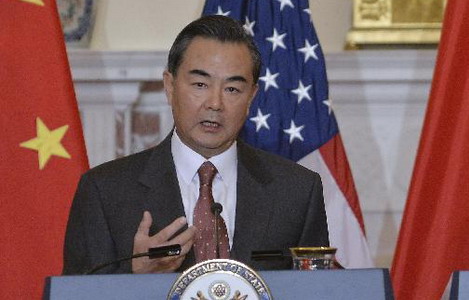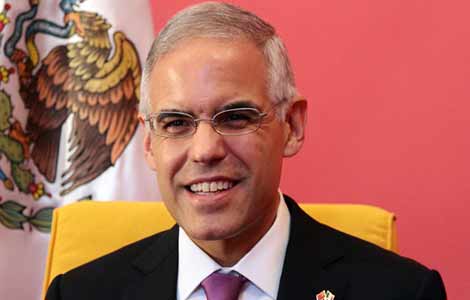China gives $3 billion to help poor
Updated: 2013-09-19 13:31
By Michael Barris in New York (China Daily)
|
||||||||
China is "leading the way" in the fight against global poverty by providing $3 billion to help emerging-market businesses develop economically vital infrastructure and housing, World Bank President Jim Yong Kim said.
"Ending extreme poverty and boosting shared prosperity in a generation are ambitious goals and to meet these goals we need to be innovative in our work with development partners," Kim said in a statement Wednesday as he ended a four-day China visit.
The World Bank's Washington-based private-sector development arm, International Finance Corp, said China will provide the funds in IFC-originated senior loans to private businesses in emerging markets for six years. The goal is to "support private sector development in emerging markets," IFC said in the release. A new IFC-launched program also will allow investors to co-invest with the institution in a portfolio of future emerging-market loans, it said.
Established by the World Bank Group in 1956, IFC seeks to advance economic development by investing in strictly for-profit and commercial projects which reduce poverty and promote development. For the year ended June 30, IFC syndicated about $3.1 billion in nancing for private-sector development in emerging markets. Its syndicated loan portfolio stands at $13.6 billion.
The financing announcement came on the nal day of Kim's trip, which had included meetings with top leaders in China and focused on urbanization, the environment and economic reform. On Sunday, Kim said the world's second-largest economy is on the right track by pushing for economic reforms and tackling severe air pollution problems, even as its economy slows amid a restructuring.
"It's encouraging that, despite growth having slowed, the Chinese government sticks to the reforms and has a strong commitment to tackling the pollution problem," Kim told China Daily in Shanghai. He said China is likely to achieve its growth target of 7.5 percent this year amid signs that the economy, which is shi ing to a consumption-driven model from an investment- and export-driven one, is stabilizing.
To combat air pollution, China has said it will reduce carbon emissions per unit of GDP by 40 to 45 percent by 2020 from 2005 levels. It aims to increase renewable energy to 15 percent of its total energy consumption by 2020 from 8 percent in 2011. Last week it said it would close old polluting steel mills, cement factories and aluminum smelters, reduce its coal consumption and boost the use of nuclear power and natural gas.
In his final speech on Wednesday, Kim called on China to plan its massive urbanization better to limit environmental damage and to ensure that millions of migrants benet more from the process. In the past 30 years, China's urban population has jumped to more than 700 million from less than 200 million. The dramatic shift sometimes has triggered violent clashes over expropriation of farmland for development, as well as water shortages, pollution and other problems.

 iPhone 5s, iPhone 5c hit Chinese market
iPhone 5s, iPhone 5c hit Chinese market
 China to play 'constructive' role on Syria: FM
China to play 'constructive' role on Syria: FM
 iPhone 5s, iPhone 5c hit Chinese market
iPhone 5s, iPhone 5c hit Chinese market
 Faces of Tibet
Faces of Tibet
 Full moon across China
Full moon across China
 Wearable technology, the new game-changer
Wearable technology, the new game-changer
 Tapestry of Chinese culture and a Harvard teen's feeling
Tapestry of Chinese culture and a Harvard teen's feeling
 A simple but pure festival tradition
A simple but pure festival tradition
Most Viewed
Editor's Picks

|

|

|

|

|

|
Today's Top News
UN lauds China on food waste efforts
Chinese firms face trust deficit
13 injured in Chicago park shooting
Wang and Kerry meet in DC
Belgian zoo owner set to host Chinese pandas
Trending news across China
Fast-track process sees more NGOs
Beijing sends out positive smoke signals
US Weekly

|

|





